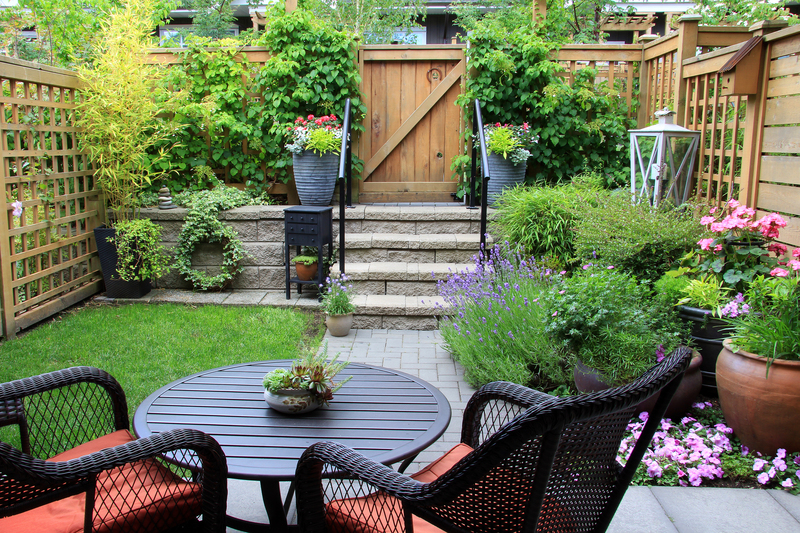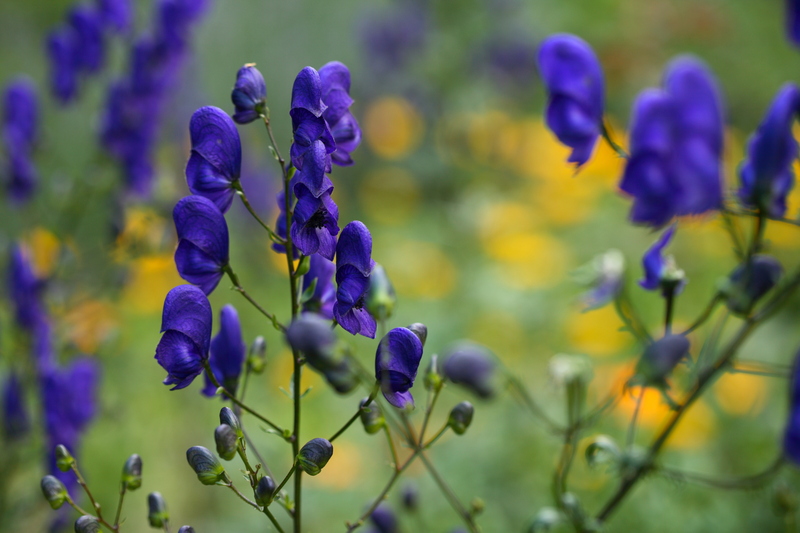Year-Round Interest with These Compact Evergreen Trees
Evergreen trees are a gardener's secret weapon for continuous color, structure, and appeal regardless of the season. While grand conifers like pines and spruces may command the landscape, there's an increasing need for compact evergreen trees that bring enduring beauty to smaller gardens, urban yards, or even patio containers. Let's explore the best choices for year-round interest, care tips, and creative ways to incorporate these resilient small trees into your landscape.

What Are Compact Evergreen Trees?
Compact evergreen trees are a group of trees that maintain their vibrant foliage throughout the year while staying modest in height and width. Typically, these trees reach a maximum of 10-20 feet tall, making them ideal for small gardens, urban settings, or as accent features. Unlike their larger counterparts, these miniature evergreens provide four-season interest with minimal maintenance and space requirements.
- Dwarf forms of well-loved conifers or broadleaf trees
- Slow-growing selections that naturally maintain a smaller stature
- Often chosen for container gardening, tight spots, or under power lines
Benefits of Planting Compact Evergreen Trees
There are several compelling reasons to add compact evergreen trees to your yard or garden design:
- Year-round foliage ensures your landscape never looks bare, even in winter.
- Low Maintenance: Many dwarf evergreens need less pruning and are resistant to pests and diseases.
- Privacy and screening: Provide green barriers without overwhelming the space.
- Versatility: Perfect for borders, foundation plantings, containers, or as specimen trees.
- Wildlife value: Offer birds shelter, nesting sites, and sometimes food.
- Diverse aesthetics: A vast array of shapes, textures, and hues suits every garden style.
Top Varieties of Compact Evergreen Trees for Year-Round Interest
Let's dive into the best compact evergreen trees that will deliver stunning beauty in every season.
1. Dwarf Alberta Spruce (Picea glauca 'Conica')
This classic miniature evergreen tree is adored for its dense, conical shape and soft, bright green needles. Growing to only 6-10 feet over many years, Dwarf Alberta Spruce is ideal for entryways, container gardens, and as accent plants. It requires full sun and well-drained soil. While relatively low-maintenance, good air circulation helps prevent disease in humid climates.
2. Hinoki Cypress (Chamaecyparis obtusa 'Nana Gracilis')
With its unique fan-shaped foliage and rich emerald coloring, Hinoki Cypress brings both texture and sophistication to the landscape. The 'Nana Gracilis' variety grows slowly to around 6 feet, offering tight, sculptural form perfect for Japanese gardens or formal designs. It prefers partial shade in hot regions and is highly tolerant of pruning.
3. Boxwood (Buxus sempervirens 'Green Mountain')
No list of compact evergreens is complete without hardy boxwoods. 'Green Mountain' is a standout, forming a natural pyramidal shape up to 5 feet tall. Boxwoods are tolerant of shearing, making them perfect for topiary shapes or low hedges. Their lush, small leaves hold color well even in winter, providing year-round visual structure.
4. Japanese Holly (Ilex crenata 'Sky Pencil')
If you want vertical accents without a sprawling footprint, this slender evergreen is a top choice. 'Sky Pencil' is aptly named for its upright, columnar form, reaching 6-8 feet with just 2 feet spread. It boasts small, glossy, dark green leaves and adapts well to containers or tight plantings. Plant in sun to part shade and keep soil moist yet well-drained.
5. Little Gem Magnolia (Magnolia grandiflora 'Little Gem')
For a compact evergreen that flowers elegantly, 'Little Gem' Magnolia is irresistible. It reaches about 15-20 feet, which is compact compared to southern magnolias, and features stunning white blooms with citrus fragrance in late spring and sporadically through summer. Its glossy dark leaves provide structure all year, while its tidy size makes it ideal for smaller gardens.
6. Dwarf Mugo Pine (Pinus mugo 'Mops')
This one's for fans of rugged evergreen presence. Dwarf Mugo Pine stays compact at around 3-5 feet, forming a mounded shape with dense, dark green needles. Extremely hardy and adaptable, it thrives in both formal rockeries and wild, naturalized gardens. Mugo pines are also drought-tolerant once established.
7. Blue Star Juniper (Juniperus squamata 'Blue Star')
With silvery-blue foliage and a compact form (2-3 feet), the Blue Star Juniper shines as a specimen or groundcover. It's tolerant of poor soils, drought, and salt, making it an excellent low-maintenance choice for tough spots or bridging garden beds with year-round color.
8. Tea Olive (Osmanthus fragrans)
Beloved for its rich fragrance, Tea Olive offers dense, evergreen foliage and delicate, tiny white blooms in spring and fall. Reaching 8-10 feet with a neat habit, it works wonderfully for privacy screens or fragrant foundation plantings. Adaptable to sun or part-shade, tea olive offers unique multisensory appeal.
Creative Ways to Use Compact Evergreen Trees in the Landscape
- Entryway Accents: Frame your front door or path with matching evergreens in urns for a formal and welcoming look.
- Privacy Screens: Arrange columnar varieties, like Sky Pencil Holly, in a row to create lush privacy on patios or balconies.
- Corner Features: Soften the corners of your home or garden beds with dense, rounded dwarfs such as Dwarf Alberta Spruce.
- Mixed Borders: Intermix compact evergreens with flowering shrubs and perennials for visual interest in every season.
- Container Gardens: Combine with seasonal annuals or trailing ivy for dynamic and movable displays.
- Rock Gardens: Low-growing mugo pines or compact junipers excel in rocky or sloped landscapes.
How to Choose the Best Compact Evergreen Trees for Your Garden
Selecting the right small evergreen tree for year-round color and texture starts with a bit of planning:
- Sun/Shade Requirements: Check whether your chosen spot receives full sun, part shade, or deep shade, and select a variety that matches.
- Soil Type: Some trees tolerate clay or dry soils, while others need rich, well-drained earth.
- Desired Height and Shape: Consider the mature size and silhouette you want; upright, rounded, or sprawling forms each have unique purposes.
- Hardiness Zone: Make sure your selected evergreen is hardy in your region for stress-free growing.
- Maintenance Needs: Decide if you want a specimen that requires little to no pruning, or one that can be shaped for formal effects.
Caring for Compact Evergreen Trees: Essential Tips
Watering
- Newly planted evergreens need consistent moisture for the first 1-2 years to establish roots.
- Once established, most are drought-tolerant but benefit from occasional deep watering during dry spells.
- Avoid waterlogged soils, which can cause root rot.
Soil & Mulching
- Most evergreen tree varieties prefer slightly acidic, well-drained soils.
- Mulch roots each spring with a 2-3 inch layer of bark, taking care not to pile mulch against the trunk.
- Mulch conserves moisture, insulates roots from temperature extremes, and suppresses weeds.
Fertilizing
- Fertilize in early spring with a balanced slow-release formula, unless your soil is already rich.
- Stop fertilizing by late summer to prevent tender growth that could be damaged by frost.
Pruning
- Most compact evergreens hold their shape naturally and need minimal pruning.
- Remove dead or diseased branches promptly.
- Shape boxwoods and holly in late spring or early summer for best results.
Tip: For container-grown evergreens, ensure pots have drainage holes and raise containers off concrete or patio surfaces in winter to protect roots from cold.
Common Problems and Solutions with Compact Evergreen Trees
- Winter Burn: Wind and sun can damage foliage in cold climates. Water thoroughly in fall and mulch well to protect roots. Use burlap screens if needed.
- Disease/Yellowing: Good air circulation, proper watering, and resistant varieties reduce risk. Pick up and dispose of any fallen needles or leaves to prevent the spread of disease.
- Pest Issues: Inspect regularly for scale, mites, or borers. Early action is key--prune and treat as recommended for each species.
- Overcrowding: Give each tree enough space to grow to its mature size freely. Overcrowding can lead to stress, poor air flow, and disease.
Maximizing Year-Round Interest: Evergreen Tree Pairings
Creatively combining compact evergreen trees with other plants enhances the seasonal appeal and adds dimension to your garden. Try these combinations:
- With Perennials: Place blue-foliaged junipers beside golden hostas or purple heuchera for a contrasting color pop.
- With Bulbs: Surround the base of a miniature spruce with spring-flowering bulbs that emerge before new foliage growth.
- With Ornamental grasses: Evergreen trees add structure even after grass plumes fade in winter.
- With Flowering shrubs: Combine magnolias and tea olives with azaleas or hydrangeas to stagger color displays through the seasons.

Frequently Asked Questions About Compact Evergreen Trees
What is the smallest evergreen tree?
Some cultivars, such as Dwarf Alberta Spruce and many dwarf conifers, will remain under 6 feet even at full maturity, making them ideal for tight spaces or containers.
Can compact evergreens grow in pots?
Yes, many compact evergreen tree varieties adapt beautifully to container life, provided they have adequate drainage, quality soil, and winter protection.
Do compact evergreens attract wildlife?
Absolutely! Dense foliage provides nesting, shelter, and sometimes food for birds and beneficial insects all year long.
Are compact evergreens fully deer-resistant?
While some types (such as boxwood or holly) are less palatable, no plant is completely deer-proof. Local conditions may affect deer browsing habits.
Conclusion: The Enduring Appeal of Compact Evergreen Trees
Choosing compact evergreen trees is one of the smartest ways to ensure visual interest and structure in your garden all year long. From formal front entryways to cozy urban patios, there's a perfect match for every style and climate. With a wealth of shapes, sizes, and colors available, these beautiful evergreens adapt to any role--hedge, specimen, container focal point, or living screen.
Invest in the beauty that lasts through every season by exploring the best compact evergreen trees. Your landscape will thank you with unparalleled charm, privacy, and year-round resilience.
Ready to add lasting elegance to your outdoor space? Visit your local nursery or garden center to discover these remarkable small evergreens and transform your landscape today.